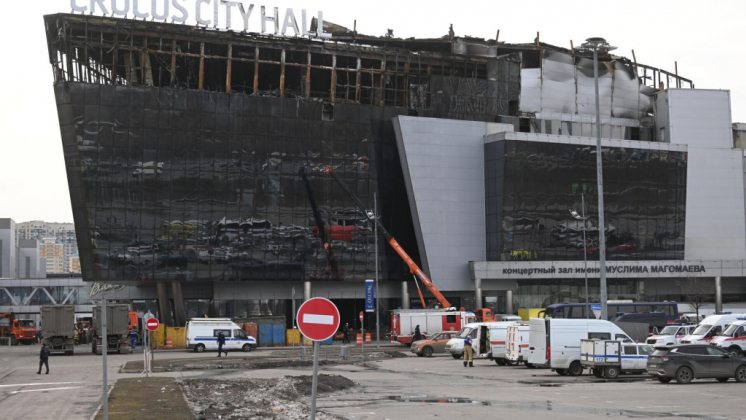 The March 22 terror attacks in Moscow and the deaths of more than a hundred innocent civilians represent one of the most unprecedented terrorist acts of recent years. Comparisons can be drawn, however, to the January 3rd Kerman bombings that killed nearly a hundred civilians and wounded two hundred more. These attacks, along with the targeting of military figures and resistance leaders in Lebanon and Syria over the past months, shouldn't be seen as isolated incidents.
The March 22 terror attacks in Moscow and the deaths of more than a hundred innocent civilians represent one of the most unprecedented terrorist acts of recent years. Comparisons can be drawn, however, to the January 3rd Kerman bombings that killed nearly a hundred civilians and wounded two hundred more. These attacks, along with the targeting of military figures and resistance leaders in Lebanon and Syria over the past months, shouldn't be seen as isolated incidents.
The Kerman bombing and other terrorist attacks that occurred against Iranian military advisors in Syria as well as the assassination of a senior Hamas leader in Beirut all took place at a time when the resistance movement and Iran's regional allies were inflicting the most severe attacks and the most difficult conditions on the Zionist regime in recent decades. Therefore, the assassination of military commanders of the resistance in the region and the bombing of Kerman can be seen as part of the Zionist regime's efforts to lessen the pressure it faces and to rehabilitate its tarnished image in the international arena in order to create a balance of power. What happened in Moscow should also be analyzed within this framework.
The convenient claim of responsibility for the Moscow attack by ISIS raises eyebrows. Tensions between Russia and the West have been at their peak for a long time. Moscow's positions on regional developments and Gaza have clashed with the interests of Tel Aviv and the West. The war in Ukraine has created extremely unfavorable conditions for Ukraine's supporters, and some figures have recently spoken of the need for Kiev to surrender in this war. Then, amidst this backdrop, a devastating terrorist attack rocks Russia and now, just like in Kerman, ISIS steps forward to claim responsibility, allowing the true masterminds to evade consequences.
A new strategy appears to be emerging: high-level terrorist operations are designed and executed to inflict severe security damage on opposing forces. Conveniently, a shadowy cross-border terrorist group claims responsibility, distancing the true planners from legal, political, and security repercussions. Failure to address this new strategy with serious preventive measures could lead to its continued use in the future. Countries in the region afflicted by terrorism must give serious consideration to collaborative efforts, both internally and with their allies, to establish a framework of joint political and security measures to counter those who foment instability and their supporters. Desperation, not strength, drives terrorist attacks on civilians. This weakness, often masked by displays of violence and brutality, should not be mistaken for a winning strategy by those who fund and support terrorism. The international community must come together to expose these tactics for what they are – cowardly acts of violence designed to sow fear and disrupt regional stability. By dismantling this new strategy and its underlying motivations, we can prevent further tragedies and work towards a more secure future for all.
by Seyyed Mohammad Javad Hasheminejad
